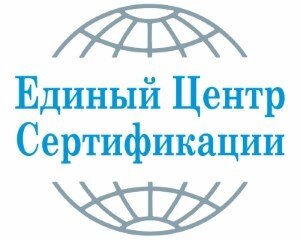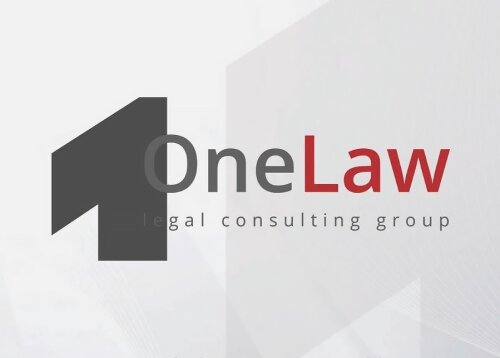Best Renewable & Alternative Energy Lawyers in Yekaterinburg
Share your needs with us, get contacted by law firms.
Free. Takes 2 min.
List of the best lawyers in Yekaterinburg, Russia
About Renewable & Alternative Energy Law in Yekaterinburg, Russia
Yekaterinburg is one of Russia's major industrial and cultural centers, located in the Ural Federal District. The region has been making significant strides toward integrating renewable and alternative energy sources, such as solar, wind, small hydropower, biomass, and waste-to-energy projects. Renewable and alternative energy law in Yekaterinburg refers to the body of regional and federal regulations, policies, and processes that govern the development, installation, funding, and operation of these energy sources. This includes licensing, environmental protection standards, grid access, tariffs, government incentives, land use, and compliance with Russian and international regulations.
Why You May Need a Lawyer
There are several scenarios where legal advice or representation in the field of renewable and alternative energy can be beneficial in Yekaterinburg. These commonly include:
- Navigating complex government permits and approval processes for renewable energy projects.
- Dealing with contracts related to construction, operation, and maintenance of renewable energy facilities.
- Advising on regulatory compliance, especially regarding environmental impact and land use.
- Assisting with negotiations for purchasing or selling energy generated from alternative sources.
- Handling disputes with commercial partners, governments, or landowners.
- Securing investments and managing relationships with banks and financial institutions.
- Protection of intellectual property related to innovative renewable energy technologies.
- Addressing issues related to grid connection and supply agreements with local utility companies.
Local Laws Overview
Renewable and alternative energy activities in Yekaterinburg are influenced by both federal Russian law and local regulations. Key aspects include:
- Federal Law No. 35-FZ On Electric Power Industry: Sets the legal baseline for the production, transmission, and distribution of electric energy, including requirements for integrating renewables into the grid.
- Renewable Energy Incentive Mechanisms: Russia’s capacity supply agreements (DPMs) and other mechanisms offer limited but growing incentives for certain types of renewables. These may provide tax benefits or premium pricing in select circumstances.
- Environmental Compliance: Projects frequently require environmental expertise approvals and need to comply with laws governing emissions, water use, and land impact, regulated by both federal and local bodies.
- Land Use Regulations: Acquiring land or property rights for renewable energy installations requires compliance with local zoning, urban planning, and property law, which can be quite complex in Yekaterinburg.
- Licensing and Permitting: New energy projects often require several layers of permits from municipal, regional, and federal authorities.
- Connection to National Grid: Technical and legal requirements for gaining access to Russia’s utility grids are tightly regulated, including technical standards and fee structures.
Frequently Asked Questions
What counts as renewable or alternative energy in Yekaterinburg?
This includes solar energy, wind power, small-scale hydropower, biomass, geothermal energy, and power derived from waste materials. The legal definition can vary depending on specific regulations.
Do I need permits to install solar panels on my property?
Yes, in most cases permits are required. The process may differ if the system is for personal use versus commercial distribution, and may involve coordination with local municipal authorities.
Are there any incentives for investing in renewable energy in the region?
Incentive structures at the federal level exist in the form of capacity supply agreements, but local incentives are limited. Authorities occasionally announce targeted subsidies or pilot programs.
Can a foreign company invest in renewable energy projects in Yekaterinburg?
Yes, foreign investment is permitted, but extra due diligence on compliance, licensing, and ownership restrictions is required. Legal counsel is strongly recommended.
Is it possible to sell surplus renewable energy back to the grid?
Selling surplus energy is possible but subject to complicated grid access rules and tariffs, usually requiring a formal agreement with the local utility provider and compliance with technical standards.
How are environmental regulations enforced?
Projects must undergo environmental impact assessments and continuous compliance monitoring. Violation of environmental standards can lead to fines or revocation of permits.
What should I consider before signing a contract for a renewable energy project?
Ensure that all regulatory requirements are addressed, review penalty clauses, project timelines, risk allocation, and liability issues. Having a legal expert review the contract is essential.
Can individuals participate in renewable energy generation?
Yes, both individuals and businesses can legally generate renewable energy for their own use. Commercial distribution, however, requires more compliance and registration.
What are the most common legal disputes in this area?
Disputes often arise from land use issues, contract breaches, grid connection problems, or conflicts over environmental compliance.
How can a lawyer help me through the permitting process?
A lawyer can guide you through paperwork, represent your interests in negotiations, ensure full compliance with local and federal regulations, and help resolve any legal complications that may arise.
Additional Resources
You can obtain further information and support from the following organizations and government bodies in Yekaterinburg and Russia:
- Ministry of Energy of the Russian Federation
- Regional Ministry of Energy and Housing-Communal Services (Sverdlovsk Region)
- Federal Service for Supervision of Natural Resources (Rosprirodnadzor)
- Regional Environmental Protection Authorities
- Russian Renewable Energy Development Association
- Sverdlovsk Regional Chamber of Commerce and Industry
- Local specialized law firms and legal clinics focused on energy and environmental law
Next Steps
If you are considering a renewable or alternative energy project in Yekaterinburg or are already facing legal concerns in this area, start by gathering all related documentation, such as project proposals, contracts, permits, or correspondence with regulatory authorities. Prepare a clear summary of your objectives and any issues you have encountered so far. Consult with a qualified lawyer who specializes in Russian energy law and has experience with regional procedures in the Sverdlovsk region. An initial consultation can help identify legal risks and next steps, whether for compliance, negotiation, or dispute resolution. Consider engaging a local expert who understands the specific challenges and opportunities in Yekaterinburg’s regulatory landscape.
Lawzana helps you find the best lawyers and law firms in Yekaterinburg through a curated and pre-screened list of qualified legal professionals. Our platform offers rankings and detailed profiles of attorneys and law firms, allowing you to compare based on practice areas, including Renewable & Alternative Energy, experience, and client feedback.
Each profile includes a description of the firm's areas of practice, client reviews, team members and partners, year of establishment, spoken languages, office locations, contact information, social media presence, and any published articles or resources. Most firms on our platform speak English and are experienced in both local and international legal matters.
Get a quote from top-rated law firms in Yekaterinburg, Russia — quickly, securely, and without unnecessary hassle.
Disclaimer:
The information provided on this page is for general informational purposes only and does not constitute legal advice. While we strive to ensure the accuracy and relevance of the content, legal information may change over time, and interpretations of the law can vary. You should always consult with a qualified legal professional for advice specific to your situation.
We disclaim all liability for actions taken or not taken based on the content of this page. If you believe any information is incorrect or outdated, please contact us, and we will review and update it where appropriate.










